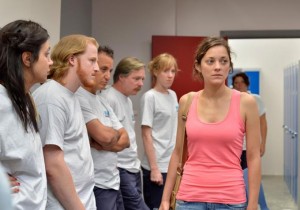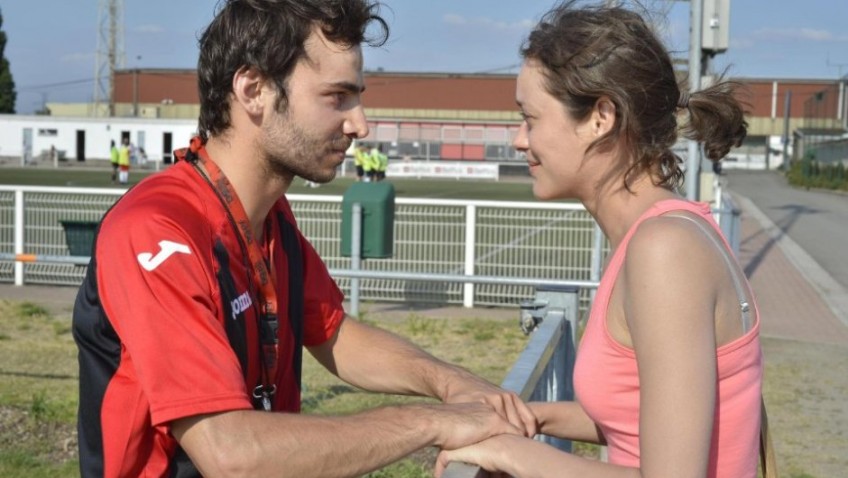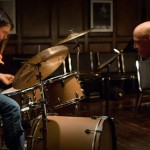Two Days, One Night (August 23, 2014)
As with the best of films, in Two Days, One Night characters grapple with moral dilemmas that will have you asking yourself what you would do in the same situation.
Sandra (Marion Cotillard), a thirty-something Belgian worker employed by a solar panel company, has one weekend to save her job when her colleagues are forced to vote on keeping their bonuses rather than Sandra on the payroll.
 For the duration of another mesmerizing, thought-provoking film from the Dardenne Brothers, Sandra pays her colleagues a weekend visit, hoping to sway their vote.
For the duration of another mesmerizing, thought-provoking film from the Dardenne Brothers, Sandra pays her colleagues a weekend visit, hoping to sway their vote.
The surprise ending packs a punch in its powerful message about dignity in employment and self-empowerment.
After the Friday vote, Sandra and her friend and colleague Juliette (Catherine Salée) persuade the boss to allow a new vote on Monday.
The women argue that foreman Jean Marc (Oliver Gourmet) was unfairly influencing the vote with his presence.
Encouraged and, when possible, chauffeured around by her loving husband, Manu (Dardenne regular, Fabrizio Rongione), Sandra reluctantly knocks on one door after another, breaking the humiliating chore with lunch with her children at the family restaurant where Manu works.
But Marion has no appetite. She has recently returned to work after an absence for depression and is notably thin. The current ordeal is not helping her recovery.
The Dardenne Brothers are not judgmental of their characters and with the exception of a belligerent worker, there are no heroes or villains. Each of the co-workers Sandra approaches is treated as an individual and they all provide totally plausible reasons why they are obliged to vote for their bonus.
A few do change their minds after hearing from Sandra. In fact, the film is surprisingly uplifting as we witness colleagues forego their substantial bonus when it is clear from their homes that they could all use the money.
 Although the story sounds simple enough, the script contains a subtlety that is rare in cinema today. At first we might not take to the self-absorbed, sobbing, pill-popping mother of two who plans to put her badger her colleagues, putting them on the spot. But gradually we learn more about Sandra until, at the end, she has earned her smile and our respect.
Although the story sounds simple enough, the script contains a subtlety that is rare in cinema today. At first we might not take to the self-absorbed, sobbing, pill-popping mother of two who plans to put her badger her colleagues, putting them on the spot. But gradually we learn more about Sandra until, at the end, she has earned her smile and our respect.
Sandra is embarrassed to be on her mission, and makes it clear to her colleagues that she does not want their pity. Far from being spiteful at their selfishness, she is aware that they need the money or that their spouses are influencing them. We also learn that Sandra took the blame for an error made by a colleague with a short-term contract and limited job security.
If there is a false note in the film it comes when Sandra takes an overdose and is rushed to hospital. She might be low enough to take this drastic course of action, but would she be on her feet within hours to resume her campaign work?
The sympathetic colleague who leaves her spouse when he insists that she keep the bonus seems like a bit of overkill. In retrospect, however, this argument probably did no more than provide a good opportunity to leave a bullying, abusive husband.
Unlike so many films that wear their message on their sleeve, this is a film where the message is delivered through the audience’s personal interaction with the film and it is constantly in flux. The script incorporates the Greek theatre’s unity of place, time and action forcing the characters’ emotions, the moral dilemma, and the human spirit, into focus.
Cotillard, who appears in every scene, confirms that she is one of the greatest actors of her generation. Breaking the unwritten rules that prevent foreign actresses from winning a best actress Academy Award, Cotillard won one for her role as Edith Piaf in La Vie en Rose and was nominated for numerous major awards for Rust and Bone in 2012.
Here the elegant Parisian’s demeanour, face, body and speech are transformed to complement the authentic sounding voice of a desperate blue-collar worker in a provincial Belgian city.
by Joyce Glasser, Mature Times film reviewer




